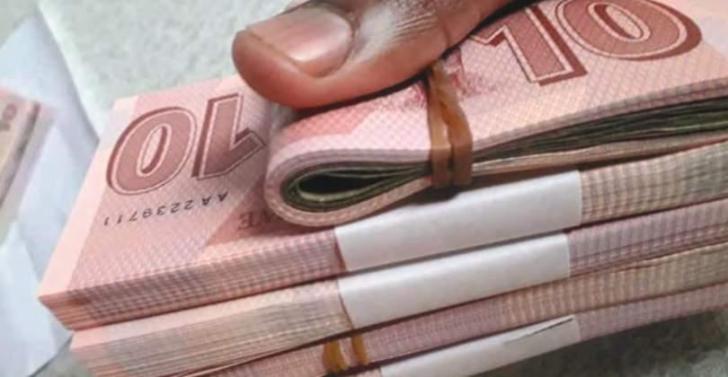News / Local
Zimbabweans fear repeat of 2008 inflation as Zimdollar nosedives
14 Jun 2023 at 17:08hrs |
1218 Views

Zimbabwean businesses and households are fearing a repeat of the hyperinflation seen more than a decade ago as prices of basic commodities spike after a sharp weakening in the local currency, despite government efforts to boost it.
The Zimdollar has so far this month plunged more than 50% in value against the U.S. dollar, after the government announced on May 29 measures to encourage the use of the local currency – as opposed to the dollar – in a bid to tame inflation.
The currency has weakened more than 80% since the start of the year.
"I went into the supermarket to buy bread and other groceries items but I was shocked to see that prices had gone up. It is like we are back in 2008," said Pride Munjeri, a 35-year-old father of two, referring to a time when Zimbabwe experienced hyperinflation that forced the country to abandon its currency in 2009.
A loaf of bread now costs 10,000 Zimdollar ($1.67). A week ago, it cost no more than 2,000 Zimdollar.
Earlier this month, Zimbabwe's main stock market temporarily halted trading to allow the market to "cool off", after shares rallied on the back of a weakening Zimdollar.
While some retailers have hiked local currency prices, others are trading exclusively in U.S. dollars to cushion themselves from the weakening Zimdollar.
"It is not possible for the retailer to procure goods with U.S. dollar and sell them in local currency," Confederation of Zimbabwe Retailers president Denford Mutashu said.
As panic over the weakening Zimdollar spreads, there have been calls for Zimbabwe to again fully dollarise the economy. Economists say already 80% of transactions in the economy are in U.S. dollars.
"We need to redollarise," independent economist Gift Mugano said. "We are at the graveyard. We are actually reading the last verses before we lower the Zimdollar down the grave."
But central bank governor John Mangudya told Reuters Zimbabwe did not have enough dollars to do this again.
"This is not the end of the Zimdollar," Mangudya said. "This country has no capacity to fully dollarise. It is not sustainable."
($1 = 5,978 Zimbabwe dollars)
The Zimdollar has so far this month plunged more than 50% in value against the U.S. dollar, after the government announced on May 29 measures to encourage the use of the local currency – as opposed to the dollar – in a bid to tame inflation.
The currency has weakened more than 80% since the start of the year.
"I went into the supermarket to buy bread and other groceries items but I was shocked to see that prices had gone up. It is like we are back in 2008," said Pride Munjeri, a 35-year-old father of two, referring to a time when Zimbabwe experienced hyperinflation that forced the country to abandon its currency in 2009.
A loaf of bread now costs 10,000 Zimdollar ($1.67). A week ago, it cost no more than 2,000 Zimdollar.
Earlier this month, Zimbabwe's main stock market temporarily halted trading to allow the market to "cool off", after shares rallied on the back of a weakening Zimdollar.
"It is not possible for the retailer to procure goods with U.S. dollar and sell them in local currency," Confederation of Zimbabwe Retailers president Denford Mutashu said.
As panic over the weakening Zimdollar spreads, there have been calls for Zimbabwe to again fully dollarise the economy. Economists say already 80% of transactions in the economy are in U.S. dollars.
"We need to redollarise," independent economist Gift Mugano said. "We are at the graveyard. We are actually reading the last verses before we lower the Zimdollar down the grave."
But central bank governor John Mangudya told Reuters Zimbabwe did not have enough dollars to do this again.
"This is not the end of the Zimdollar," Mangudya said. "This country has no capacity to fully dollarise. It is not sustainable."
($1 = 5,978 Zimbabwe dollars)
Source - Reuters
Join the discussion
Loading comments…































